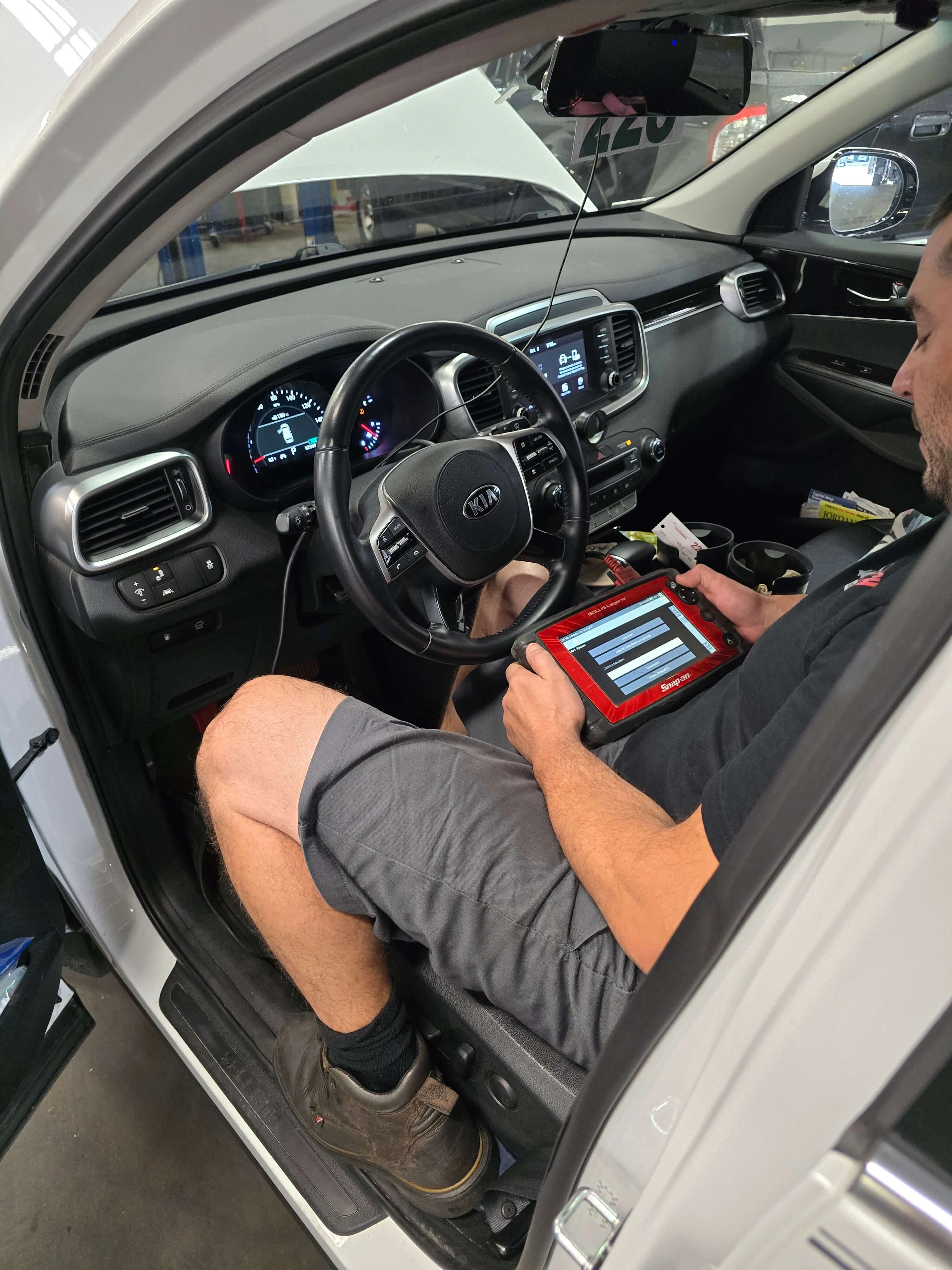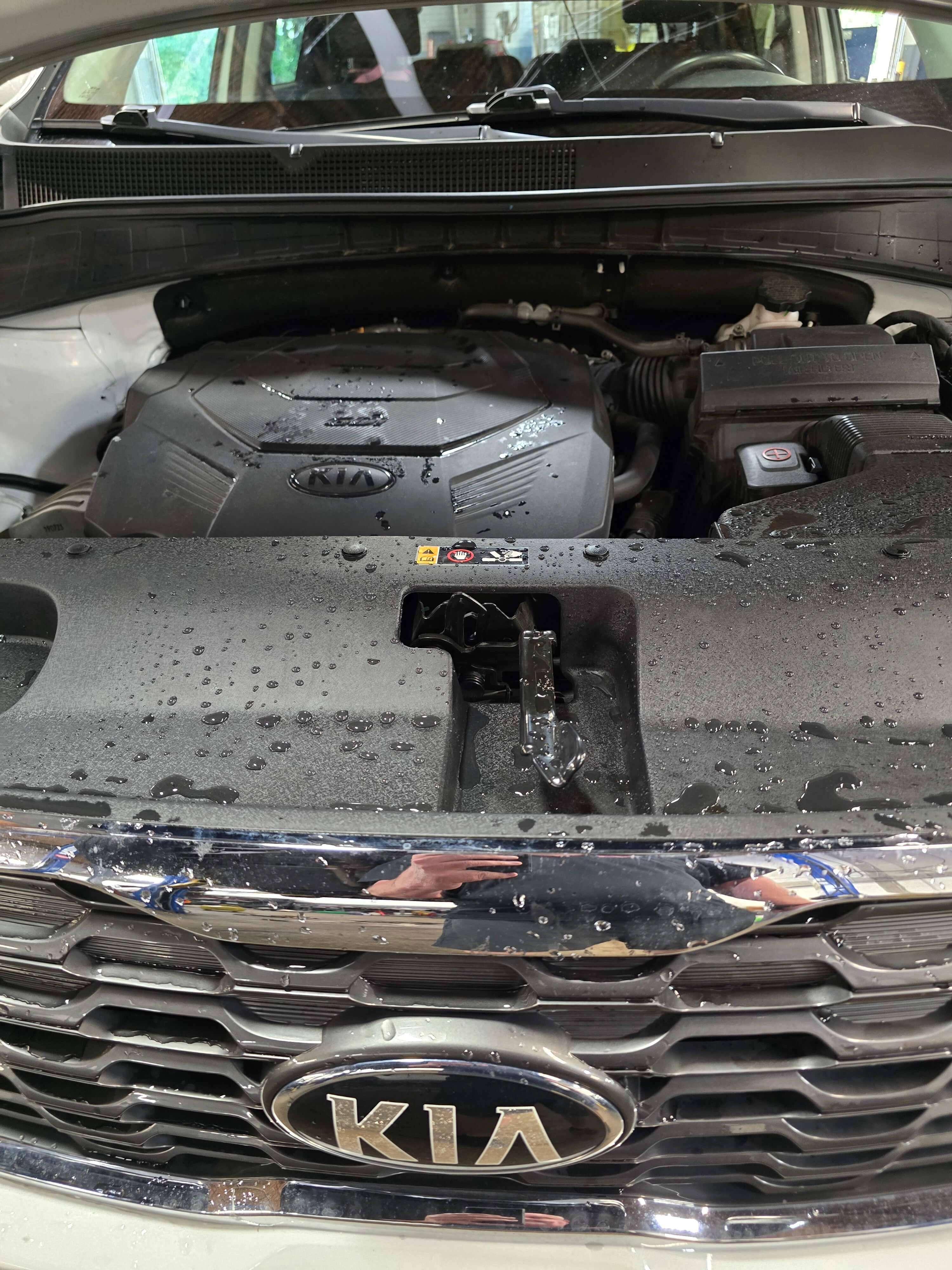
1818 St. Albans Dr #106, Raleigh, NC 27609

Need Help
919-872-1999
1818 St. Albans Dr #106, Raleigh, NC 27609

Need Help
919-872-1999
The Kia Sorento is a midsize SUV that checks a lot of boxes—affordable, versatile, and loaded with features for families or commuters. Whether you’ve got the base model or a higher trim with leather and tech galore, it’s a solid option. But even the best SUVs eventually need some love. Over time, certain issues tend to show up—especially if maintenance slips or mileage starts to climb.
At Creech Import Repair, in Raleigh, we’ve seen just about every problem a Sorento can throw your way. Whether it’s a weird noise under the hood, a dashboard warning that won’t go away, or just routine service, our team knows how to handle it. We work on all Kia models, but the Sorento is one of the most common SUVs in our garage.
In this guide, we’ll run through:
Kia rolled out the Sorento in 2002. At first, it was more truck-like—built on a body-on-frame platform with a rugged, utilitarian feel. Over time, it evolved into a sleeker, family-friendly SUV with better fuel economy and modern touches. By now, it’s one of Kia’s most popular models.
You’ll find the Sorento in two configurations:
Each redesign brought new features—and, of course, new quirks. Let’s look at how the Sorento has changed and what problems are most common by generation.

We’ve worked on Sorentos from every generation. Here are the issues we’ve seen most often in the shop, grouped by model years.
These early Sorentos were built tough. They had a truck-style setup, rear-wheel drive, and available 4WD. But they weren’t without issues:
Still driving one of these? You’ll want to stay on top of maintenance—especially anything related to the engine or driveline.
This redesign brought a smoother ride and a switch to unibody construction. It also brought a few new headaches:
Buying a used model from these years? Make sure it’s had recall work done and watch for signs of engine trouble.
This generation brought another redesign, better materials inside, and more advanced features. It also brought some repair trends we’re all too familiar with:
If you own one of these models and notice any hesitation or dashboard lights, it’s worth bringing it in early.
The current Sorento is packed with tech and offers everything from base gas engines to hybrids and plug-in options. But even with all those updates, a few bugs have shown up:
This generation is still relatively new, but we’re already seeing a few of these issues surface as the miles build.
Across all years, there are a few problems that just seem baked in. These issues aren’t limited to one generation:
Any of these ringing a bell? It might be time for a quick check-up before a small issue becomes a big one.
Some problems scream for attention. Others whisper. Here’s what to watch for:
If anything feels off, trust your gut—it’s better to catch it early than wait for a tow truck.
Routine maintenance can prevent big headaches later. Here’s a general outline to follow:
| Service | Recommended Interval |
|---|---|
| Oil & Filter Change | Every 5,000–7,500 miles |
| Rotate Tires | Every 7,500 miles |
| Brake Check | Every 10,000 miles |
| Spark Plugs | 100,000 miles (iridium) |
| Transmission Fluid | Every 60,000 miles |
| Coolant Flush | Every 60,000 miles |
| Cabin Air Filter | 15,000–30,000 miles |
| Timing Belt (if equipped) | 60,000–90,000 miles |
Let us know if you're unsure about your car’s history—we’ll help set a personalized service plan.
The Sorento offers a lot—space, power, tech—but it’s not perfect. Like any vehicle, it needs regular care and the occasional fix. At Creech Import Repair, we’re here to make sure your Sorento keeps doing its job, whether that’s school runs, road trips, or daily commutes.
From routine maintenance to major repairs, we’ve got your back.
If your Toyota Corolla is showing signs of trouble—or if you just want to stay ahead of expensive repairs—don’t wait. Our team at Creech Import Repair will give your car the care it deserves, with no gimmicks, no high-pressure pitches, and no unnecessary services.
📍Visit Us:Creech Import Repair – Raleigh, NC
📞Call Now: 919-872-1999
🌐 Schedule Online: Contact us
For an estimate with the most trusted auto repair shop in Wake County, Creech Import Repair!



At Creech Import Repair, our philosophy is simple: Treat customers with kindness, respect, and honesty, and success will follow. Contact us for any and all of your automotive repair needs.